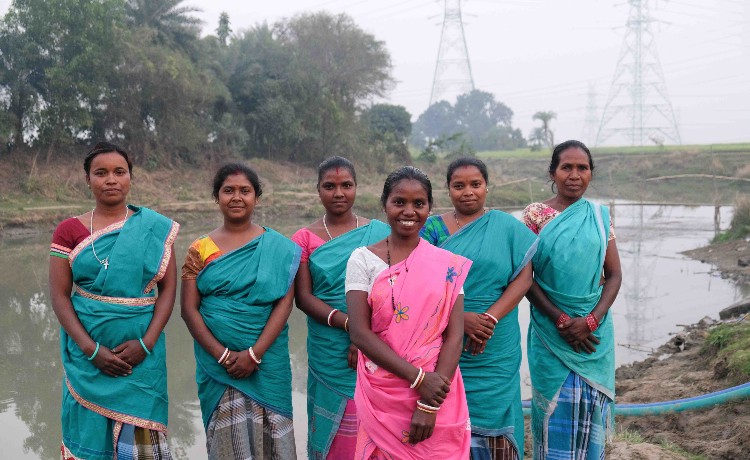With consistent efforts to uplift communities at Farakka, West Bengal since 2006, ACF commissioned an external Social Return on Investment Study to better understand the impact of its interventions. Conducted by the CII Centre of Excellence for Sustainable Development (CESD), New Delhi, the study returned the finding that for every Re. 1 invested by Ambuja Foundation, a social return, valued at Rs. 9.91, was generated.
ACF has been actively engaged in community development at Farakka since 2006 - part of Murshidabad District which is now one of the aspirational districts of West Bengal. People in Farakka with a low socio-economic status, face the critical challenges of poor health, and limited access to livelihood opportunities, which lead to slow growth in the area.

Focusing on need-based interventions in the areas of community health and improving livelihood options through agriculture, allied agriculture and skill training, especially for the youth in the area, ACF has worked deeply with the marginal and mostly tribal communities that live there in 26 villages.
The study framework followed the Social Value UK methodology and seven principles of SROI in deriving the SROI values and focused on the three year period between 2019-2022. A break down of the findings across program interventions was also provided:
Development Programme | SROI value |
Agro Based Livelihood | 14.94 |
Community Health | 9.90 |
Women Empowerment | 9.60 |
Skill and Entrepreneurship Development | 9.15 |
Water Resource Management | 8.27 |
Average SROI | 9.91 |
The highest SROI for the Agro based Livelihood Program was as a result of interventions in terms of agriculture income, irrigation channel development, and improved crop productivity. The highest SROI for the Agro based Livelihood Program also reflects the value addition of water resource management interventions, increased ground water and improved irrigation facilities.

Village Health Functionaries (Sakhis) and their efforts to provide primary health care facilities have significantly improved the health conditions of people in Farrakka. The Sakhis efforts to provide primary health care services have significantly improved the Maternal Child Health indicators including IMR, MMR and institutional delivery rates. Accessibility of health care services for truckers also improved with TB testing, HIV/AIDS and increased NCD awareness.
With the low socio-economic indicators of the area, women’s empowerment, especially in the area of allied agriculture interventions such as poultry and goat rearing, generated several earning opportunities for women and structural change in access to credit and savings.

Skills development led to income generation and enterprise promotion for youth. In fact, during the difficult times of COVID-19 pandemic, this local source of income was instrumental to the survival of many households.
Ambuja Foundation with its unique ability to forge partnerships, worked with government and private organisations on all the above programs, and convergence with partnerships contributed in improving the scale of reach, with interventions impacting a larger number of communities. Our models are strengthened and we hope to expand them to geographies within the region.






0 Comment